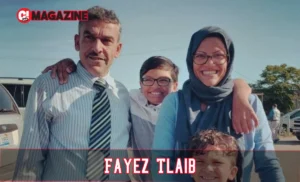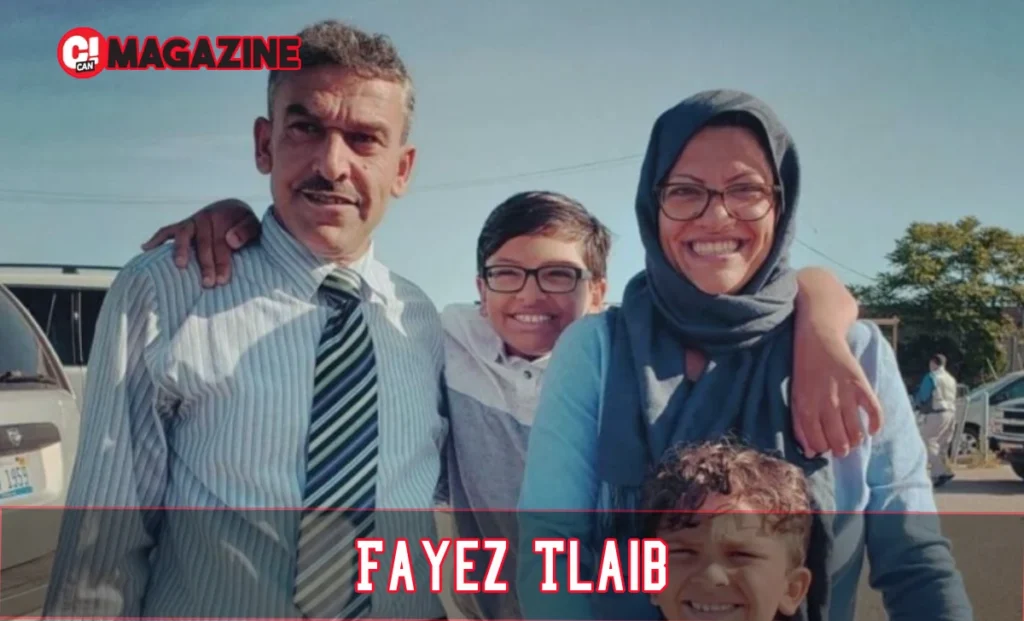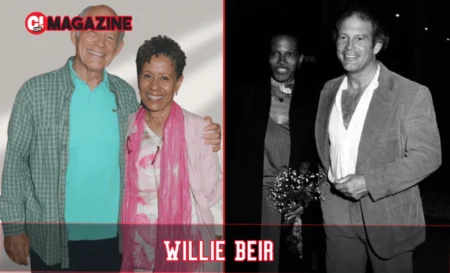You might know Rashida Tlaib as the bold voice in Congress fighting for progressive causes. But behind her public battles stands a man who chose the opposite path: Fayez Tlaib, her ex-husband. In a world that demands constant visibility, Fayez’s story shows what happens when someone opts out. He grew up with Palestinian roots, married young, raised a family, and now lives quietly in Michigan. This piece uncovers his background without the hype. You’ll get clear facts on his heritage, marriage, and why privacy matters to him. Plus, insights into how family dynamics play out when one partner steps into the spotlight.
Who is Fayez Tlaib?
The Roots of Fayez Tlaib: From Palestine to America
Imagine leaving a village steeped in history for a new country full of unknowns. That’s the start of Fayez Tlaib’s path. Born in the West Bank village of Beit Ur al-Fauqa, he carried Palestinian traditions across the ocean. These included family gatherings around olive harvests and stories of resilience passed down generations.
You see, for many Palestinian-Americans like Fayez, immigration isn’t just a move—it’s a bridge between worlds. He settled in Michigan, drawn to Dearborn’s tight-knit Arab community. There, mosques and markets echo the homeland. This base helped him adapt while holding onto his identity. But here’s the catch: details on his exact arrival or early jobs stay private. What stands out is how this foundation shaped his values—loyalty to kin over spotlight.
Rashida has spoken about similar roots in her own life. It created common ground for them later. If you’re curious about immigrant stories, Fayez’s quiet navigation offers a model. He didn’t chase the American dream through headlines. Instead, he built stability, showing you how cultural ties fuel personal strength.
| Quick Bio: Fayez Tlaib | |
|---|---|
| Full Name | Fayez Tlaib |
| Birthplace | Beit Ur al-Fauqa, West Bank, Palestine |
| Nationality | American (Palestinian descent) |
| Religion | Islam |
| Residence | Michigan, USA |
| Marital Status | Divorced |
| Children | Two sons: Adam and Yousif |
This table pulls together verified basics. It skips the rumors that pop up online.
How Fayez and Rashida Tlaib Met and Built Their Life Together
Community events often spark lasting connections. For Fayez and Rashida, it happened in the early 1990s amid Detroit’s activist circles. Both in their early 20s, they bonded over shared frustrations—inequality, cultural erasure. Rashida was studying law; Fayez, establishing his footing in America.
By 1998, they married in a simple ceremony blending Palestinian customs with American flair. Think henna nights followed by backyard feasts. You can picture the support they offered each other as Rashida dove into politics. She interned for a state rep, then won a House seat in 2008. Fayez stayed in the background, handling the home front so she could campaign late.
But wait—what drew them close? Mutual respect for ambition tempered by family focus. In interviews, Rashida credits early partners like Fayez for her drive. For you, this highlights partnership in high-stakes fields. It’s not always equal billing. Sometimes, one builds the stage while the other performs. Their early years in a modest Detroit home underscore that balance.
As Rashida rose—becoming the first Palestinian-American woman in Congress in 2019—Fayez’s role evolved. He attended a few events but never sought credit. This dynamic teaches a key lesson: support doesn’t need applause to count.
Family First: Raising Sons Amid Public Scrutiny
Parenting gets tricky when one parent’s face is on the news. Fayez and Rashida raised Adam and Yousif through it all, prioritizing normalcy. Adam, the older, navigated school plays and soccer while his mom debated bills. Yousif followed suit, with family trips to Palestinian festivals keeping roots alive.
You might wonder how they shielded the boys from headlines. Simple rules: no cameras at birthdays, talk about privacy early. Rashida has shared glimpses, like walking into family dinners post-vote. Fayez handled the daily rhythm—school runs, homework help—freeing her for D.C. trips.
This setup benefits everyone. The sons grew up valuing education and community service, much like their parents. Dearborn’s schools, rich in diverse peers, added layers. For families in similar spots, Fayez’s approach works: set boundaries, lean on culture. It prevents resentment and builds unity.
One challenge? Media curiosity. Stories sometimes twisted facts, like false family ties rumors. Yet, through it, Fayez modeled grace. You learn here that family isn’t about perfection—it’s consistent presence.
The Decision to Divorce: Navigating Change with Grace
Marriages shift, especially under pressure. After 17 years, Fayez and Rashida parted ways around 2015. Reasons stayed private—no public drama, just a mutual step back. Rashida was eyeing Congress; the timing aligned with personal growth needs.
Divorce hit as she launched her congressional bid. Yet, they co-parent seamlessly. Sightings at graduations or holidays show teamwork. Co-parenting tips from their example: Communicate weekly, honor the other’s role, keep kids central. It eases transitions for everyone.
You gain from this: endings don’t erase shared history. For political families, it underscores mental health’s role. Rashida later spoke on self-care in chaos. Fayez’s silence amplified that—sometimes, stepping away heals.
Post-split, no bad blood surfaced. This contrasts with tabloid tales of other splits. Instead, it proves respectful closure possible, even publicly. If you’re facing change, their story reminds you: focus on forward motion.
Embracing Privacy: Fayez’s Choice in a Spotlight World
Why dodge the fame? Fayez’s no-social-media stance stems from a deliberate choice. In an era of influencers, he picks depth over likes. Palestinian-American life already draws eyes—protests, stereotypes. He avoids adding fuel.
This decision protects his peace. No verified profiles exist; searches lead to echoes of Rashida’s work. You benefit by seeing alternatives to oversharing. Privacy fosters real bonds, away from algorithms.
Broader view: In Dearborn, where Arab culture thrives, Fayez blends in. Mosques host iftars; shops sell za’atar. His low-key fits let him mentor locally without fanfare. Challenges arise—curiosity breeds speculation. But he counters with absence, a powerful statement.
For you in public-facing roles, consider this framework: Privacy audit—list exposures, cut non-essentials. Fayez’s way builds resilience, proving that less visibility can mean more control.
Fayez Tlaib Today: A Quiet Life of Purpose
Fast-forward to 2025. Fayez remains in Michigan, co-parenting and nurturing ties. No headlines, but whispers of community involvement surface—volunteering at cultural centers, perhaps. Details scarce, as intended.
His days likely mix family time with reflection. Sons now teens or young adults, pursuing paths shaped by parents’ examples. Adam might eye law; Yousif, activism. Fayez guides without pushing.
What defines him now? Purpose in subtlety. In a polarized climate, his stance on Palestinian issues stays personal, not performative. This echoes larger trends: quiet advocacy amid noise.
You walk away understanding Fayez Tlaib not as a footnote, but a full story. His choice—privacy over prominence—offers tools for your life. Whether balancing family or fame, prioritize what sustains.
In wrapping up Fayez Tlaib’s world, remember: true influence often hides in plain sight. His Palestinian-American journey, from village roots to Michigan homes, enriches the conversation on identity and choice. Next time Rashida speaks out, think of the steady hand that helped launch her. For more on Arab-American leaders or family in politics, explore those threads—they connect us all.
For more captivating stories about sports legends and their remarkable journeys, explore CanMagazine—where athletic history comes alive and inspiring careers unfold.







